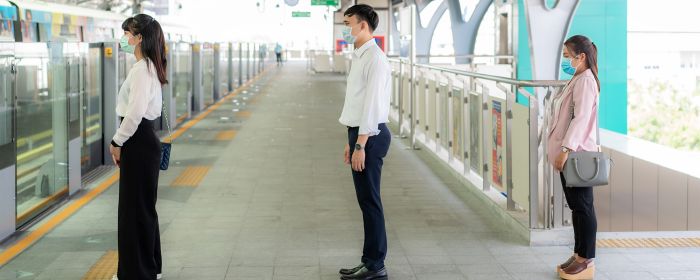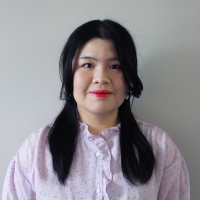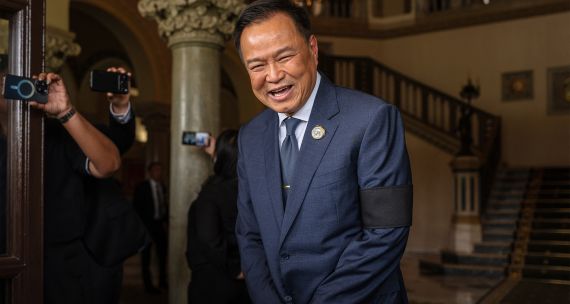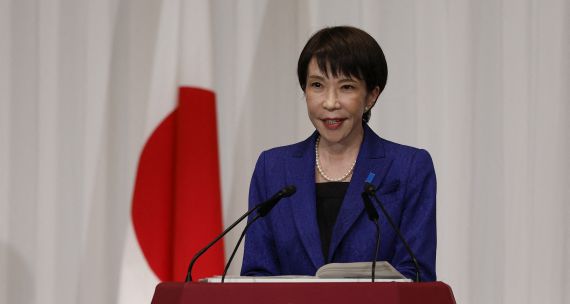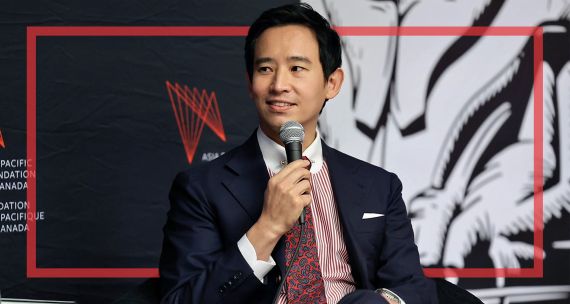“Please don’t violate the emergency decree. It’s what makes us safe,” announced Thai Prime Minister Prayut Chan-o-cha last week as he announced an extension of the country’s state of emergency to May 31. To combat the spread of COVID-19, the Thai government is restricting travel, declaring curfews, and shutting down disinformation on social media. But a recent report by Amnesty International criticizes Thailand’s emergency measures, saying they create a “climate of fear designed to silence those with dissenting views” and that the government is using the “COVID-19 pandemic as a pretext” to crush dissent. Government officials such as Public Health Minister Anutin Charnviraku have also attacked doctors and other medical personnel for allegedly being infected with the coronavirus, despite Thailand's low COVID-19 fatality rates and strong public health system, which make it one of the most well-positioned countries in Southeast Asia to cope with the crisis.
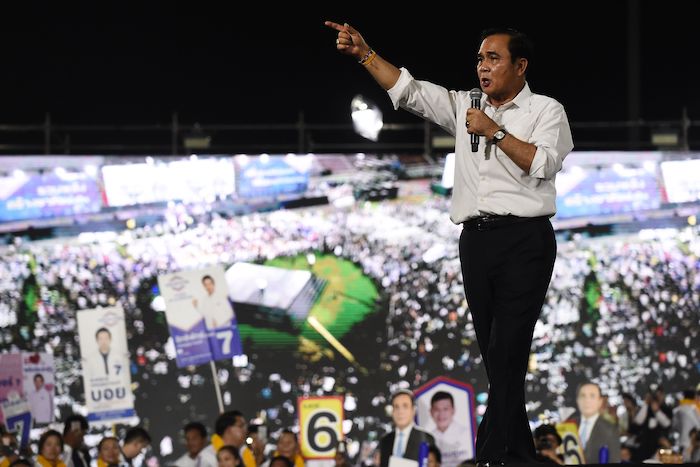
Thailand's Prime Minister Prayut Chan-O-Cha gestures during his party's final major campaign rally in Bangkok on March 22, 2019, ahead of the March 24 general election. | Photo: Lillian Suwanrumpha /AFP via Getty Images
Thailand’s March 2019 elections raised hopes of restoring parliamentary democracy after a 2014 coup led by Chan-o-cha ushered in nearly five years of military rule. With a record 80 political parties and more than 13,000 candidates from across the ideological spectrum, the long-awaited elections generated excitement for change as social and political controls were relaxed over the campaigning period. The electoral period, however, was ultimately marked by gerrymandering, censorship of the opposition, and the modification of electoral rules regarding allocation of seats, all of which have raised criticisms that the election was designed “for the prolongation of military rule.” In other words, the criticism is that the re-installment of Chan-o-cha as prime minister not only further solidified Thailand’s move away from democracy, but also aimed to entrench the military junta’s authoritarian legitimacy. The repressive policies implemented in the wake of the COVID-19 outbreak are not merely a reaction to the pandemic, but are widely seen as an opportunity to push harder against public criticism.
The royal factor
Last year’s elections were also marked by controversy over the drafting of a new constitution, the disbanding of political parties, and the censoring of opponents. The pandemic has further exacerbated the crisis in public confidence in the government, especially after Chan-o-cha recently announced that his plan to kick-start the economy included trying to enlistthe country’s billionaires. That decision was perceived by many Thais, who publicly questioned the benevolence of these tycoons, as a sign of the government’s incompetencein handling an economic recovery.
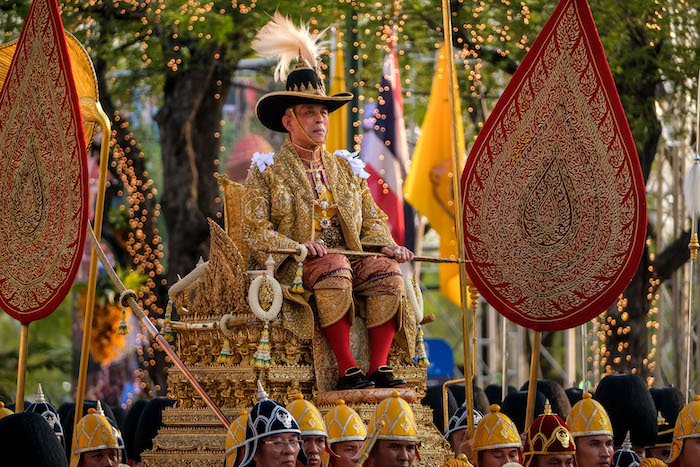
Thailand’s King Maha Vajiralongkorn takes part in a ceremonial Royal Land Procession following his coronation on May 4, 2019, the first in nearly seven decades. | Photo: Linh Pham/Getty Images
The March 2019 elections also coincided with the official coronation of King Vajiralongkorn almost two years after the death of his father, the highly-venerated and respected King Bhumibol. While the new king’s controversial self-isolation at a luxurious location in Germany during the pandemic sparked anger and international scrutiny, lèse-majesté laws continue to be invoked to suppress criticism of him at home. The king himself has also rewritten constitutional clauses that had constrained his powers, taken over the assets of the mega-rich Crown Property Bureau, and acquired personal command of some of Thailand’s most powerful army units. The fact that King Vajiralongkorn continues to consolidate power in Thailand, even while doing so from overseas, suggests that he is little concerned about public criticism of his actions.
Under the now deceased King Bhumibol, the military and royal family closely co-operated, partly due to Cold War imperatives that fused national security with the security of the monarchy. But the overthrow of the Thaksin government in 2006 awakened a political movement against the monarchy-backed ‘Yellow Shirts,’ with the opposing ‘Red Shirts’ expressing strong dissatisfaction with the military’s interventions in the country’s politics. Today, although this military/monarchy relationship is fluid, Chan-o-cha’s government continues to prosecute individuals posting content critical of the monarchy, and there is growing disillusionment with both leaders.
The youth factor
The Future Forward Party, founded in 2018 by billionaire Thanathorn Juangroongruangkit, mobilized a progressive campaign focused on anti-establishment and pro-democratic policies that garnered a strong following among younger voters. And even after several of its executives were banned from politics, the hope for democratic reform continues as youth protest in creative ways. Through memes critical of the current king and anti-establishment hip-hop anthems, young Thais have developed a voice that is increasingly critical of the status quo.
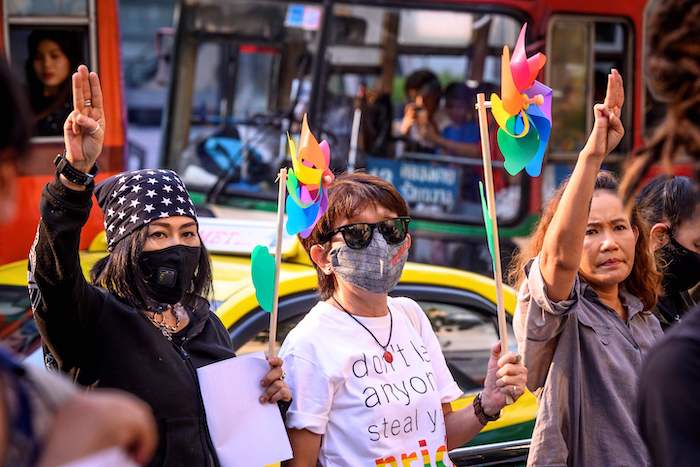
Protesters, wearing facemasks amid fears over the spread of the novel coronavirus, shout slogans during an anti-government rally in Bangkok on March 1, 2020. | Photo: Mladen Antonov/ AFP via Getty Images
However, bans on public gatherings under the current COVID-related state of emergency are doing more than addressing the pandemic, they are also stifling opposition. The student speeches that followed the court-ordered dissolution of Future Forward in February 2020 are the type of massive youth protests that risk being quashed by the new restrictions. As youth grow more discontent with the old guard, and voice their frustrations over an increasingly unsustainable public debt, a further restriction of their civil liberties is likely in the cards.
The diminishment of freedoms
The censoring of fake news, justified to “take good care of the public,” has only strengthened attempts to intimidate Thai dissidents. Individuals have been interrogated and forced to delete content without an arrest warrant following online criticisms of the monarchy and the military. Journalists have faced lawsuits over criticisms of government responses to the outbreak and alleged corruption relating to the hoarding of medical supplies.
As the suppression deepens, caught under its boot heel are media freedoms, freedom of speech, and wider access to accurate information that is crucial to keeping citizens informed in a time of pandemic. Indeed, the Thai government’s plan to extend its emergency decree and proclamations that “extreme measures require extreme solutions” are in effect justifying a turn toward authoritarianism that is far from what was optimistically envisioned in the lead-up to last year’s elections.
